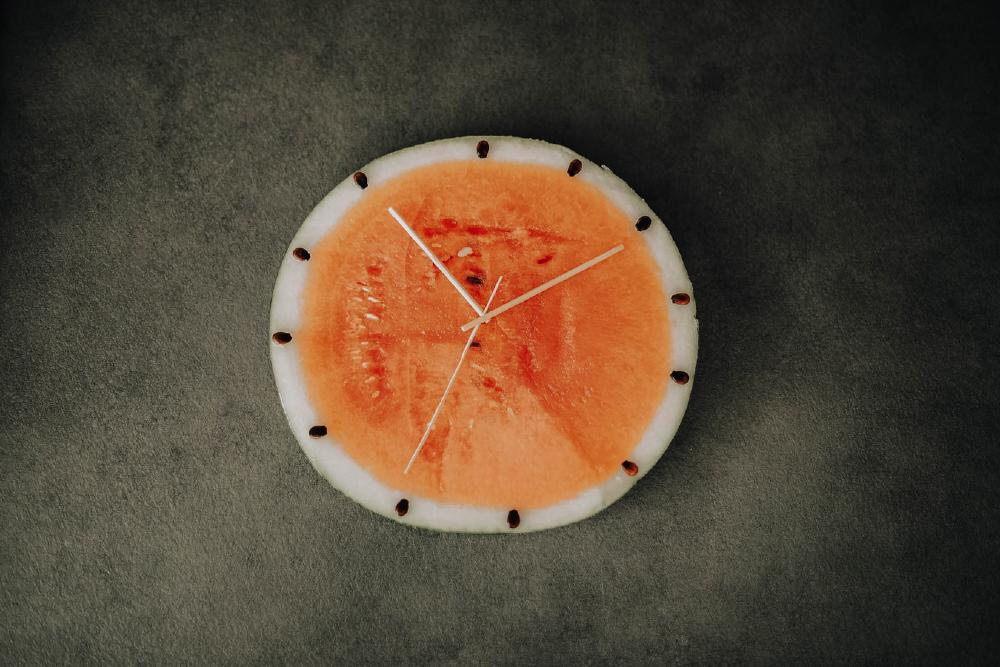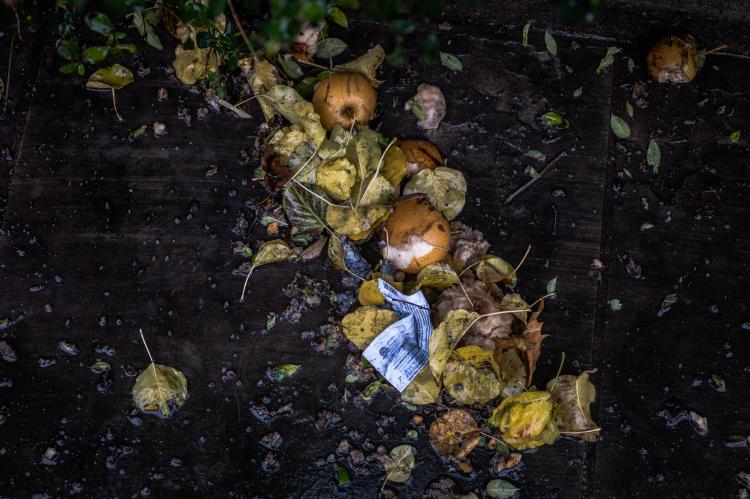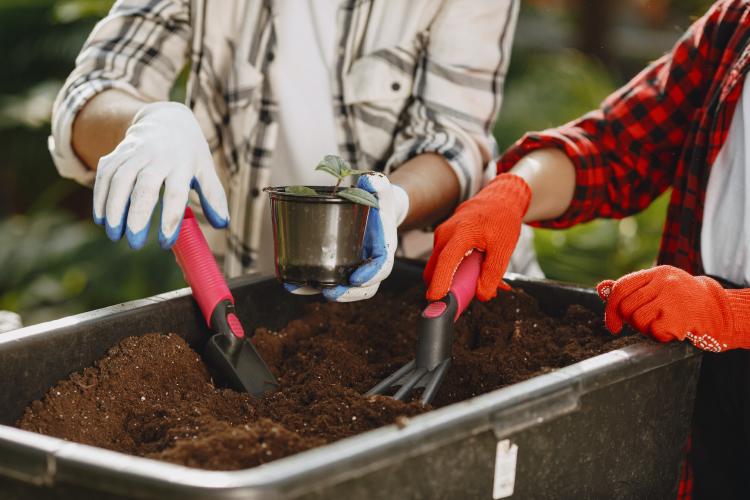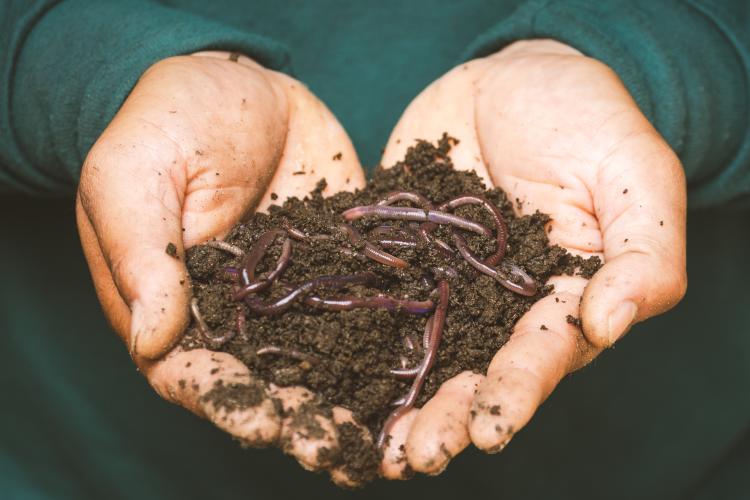
Maybe you’re a newbie in this world of gardening and composting or you’re pretty into it but don’t have a clear idea about how much time it takes to compost. You keep adding materials and turning the pile but it seems like it takes ages to get that earthy smell and appearance of rich soil.Well, this can be the case when you don’t know the tips to follow on composting and how to speed it up in this wonderful process of recycling organic material. Learn how to do it!

Now, how much time does it take to compost, really? Well, if you want an answer that could be between four weeks to a whole year. Some special ingredients can accelerate compost breakdown.
Some items take longer, others do not. However, you can test your mix to see when the compost is finished. Compost that is ready should look like topsoil. If you put some compost on a sealed plastic bag and after some days it smells bad or sour then it’s not ready. Now, if it has a fresh earthy smell then you’re done! It should look like fresh, dark soil without any particles or ingredients partially broken down.
Just don’t give up. Having a compost bin in your backyard means you care about the environment. It’s like your garbage comes back to life. So, no excuses not to try it
Jump into these valuable tips to speed up your compost breakdown:
Composting can be prepared anywhere in your property or you can use a bin instead. This will make a difference, indeed. If you use a bin, be sure it is big enough to allow turning and mixing. Plus, the bigger the container, the more the heat you get. Compost piles of 3 ft square by 3 ft high are highly recommended as they get hotter quicker. Remember this heat comes from bacteria working really hard to break down all the material.
Bear in mind that your stuff must be moist for bacteria to work properly, so the compost bin material is important as well. Plastic bins are better than wooden ones, which don’t retain much heat, but they will dry under the sun, mainly in summer. So, avoid direct sunlight, mainly during hot days.
It’s important that you know which products will break down easier and quicker. Composting depends on a balance between carbon and nitrogen ( brown vs green materials, respectively) so, how much time it takes to compost will greatly depend on this main factor as well. Be sure you alternate the layers of browns and greens. Read more about the composting process of solid waste to be an expert!
Green items speeding up compost breakdown include fruit peel (lemon and orange break down faster) and food scraps (veggies and fruit, meat is forbidden).
Brown items such as dry leaves, corn stalks, pine needles compost quickly. Cardboard and paper, however allowed, will take months to decompose.
Other ingredients you should avoid adding to your pile (that will impact on how much time it takes your pile to compost) are: cooked foods, dog feces, diseased plants, meat, dairy products which will all slow down compost breakdown.
Finally, the smaller the pieces, the faster they will be decomposed. So, shredding your stuff is the best option.
Summing up, for a rapid compost process you should add:
A typical ingredient which was thought to be the perfect nitrogen-rich item for your composting is manure. It was believed it speeded up microbial activity. However, as new types of bacteria are not so reliable, it is not recommended you add manure to the pile. Instead, try alfalfa or soybean meal which are other nitrogen-rich alternatives.
It’s all about aeration and keeping your pile “alive”. The more you turn your pile, the better the aeration will be. And with that I mean once a week. So, if you aerate your material more often, the process will be faster. This part is quite crucial when we talk about how much time it takes to compost because the bacteria working in the composting process need air to work properly. You can use a pitchfork or compost tumbler to move the pile.
Also, keep in mind that the heat is in the core. That heat results from the microbes turning the ingredients into compost. If it’s hot, that means there’s a lot of activity going on down there. Result: quicker compost. The hotter, the quicker.
So, you will need to turn over the pile frequently so as to let external material be close to the core as well. Don’t forget to add water from time to time to maintain the pile damp (moist) enough (not wet or soaked). Your pile should be moist but not wet to the touch. That might be a sign of lack of air or nitrogen.

Again, how much time it takes to compost will also depend on weather conditions. It’s already clear that warm days are the best time to start composting. Cold days during winter won’t help the bacteria to be active. Actually, the time of year is a key factor to speed up the process. You may start composting during fall but don’t expect a good compost during spring. Much better, you may start during summer and get a perfect compost in fall. Keep your bin or pile under sunlight to make the process go faster.
In general, keep in mind these numbers so as to check it:
Remember that the temperature in the core is super important. There’s where the bacteria work and it needs heat. So, check that the temperature at the center is between 120 to 170 F.
The temperature will start decreasing, so at that point you should turn the pile.
So, now you know the best you can do to speed up your compost is having a hot bin, adding the right materials and mixing and turning over the pile once a week. Other quick tips to have in mind are extra “helpers” and extra strategies to predict how much time it takes to compost.
We already said that a balance between nitrogen and carbon is what your pile needs for a rapid decomposition (it needs to have a carbon to nitrogen ratio of 20:1).
Other options in the market to kick start your pile are compost accelerators, which are a mixture of microbes needed to start decomposing your ingredients, and organic activators which have nitrogen and starving microorganisms ready to eat all the material.
More natural options to accelerate compost breakdown include adding existing compost and new material to the pile. Existing compost (a neighbor may have some) will accelerate the process because you already have the bacteria ready to work on your own pile.
Find out more details on: How to make a Compost Pile? All you need to know about it
Moreover, as you turn over the pile several times, it will start becoming smaller in size. Now’s a good time to add more material and mix it with older stuff. This way you maintain the pile and harvest what’s already done.
However, if you repeatedly add fresh stuff that could slow down the process. A good idea is having two different bins, one with ready-made compost and another one for the fresh items you add every day.
Finally...worms! Black soldier flies larvae are great to have your compost ready in just three weeks or so. They work fast and can survive hot temperatures. Yet, they aren’t a key factor on how much time it takes to compost.
Do not trust solely in larvae, though. Vermicomposting (using red worms or earthworms to breakdown the materials in your pile) is an alternative for composting but it is rather slower than the traditional one (balance between green and brown material).

That will depend on the size of the pile, the ingredients chosen and the season. Your compost should look like fresh soil and smell like rich earth, not sour. Be sure that there aren’t any undecomposed particles. That would mean wrong or not enough mixing.
Besides, you can check the ph level and temperature of the pile with a thermometer. A good tip: you already know that you have to turn the pile every time the core temperature starts decreasing. When your compost is almost ready you will notice the pile stops heating up after turning.
Remember that your main objective is to get all the ingredients fully decomposed, that means your compost is mature and ready to use. Learn more about When is Compost Finished? Become an Expert with these Advices.
No matter if you use a bin or just a pile anywhere in your property. Here, what matters the most is that you keep on composting as part of your daily life.
It’s a perfect way of reducing waste and having rich soil for your plants. Be ready to follow the tips to speed up the process and keep more than one pile at a time. How much time it takes to compost, though, will depend on the available time you have to work on your pile, the ingredients you add and the time of year you start doing it. You can choose many ways to accelerate the magic inside your compost. Just give it a try!